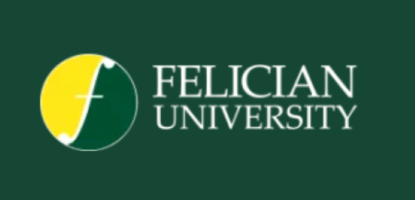Rutherford, June 26, 2024 – Rutherford, New Jersey –

Nurse practitioners (NPs) continue to be recognized as one of the most important and in-demand careers according to the U.S. Bureau of Labor Statistics. For the second year in a row NPs are projected to have the highest growth rate among all occupations with approximately 18,600 nurse practitioners anticipated to enter the workforce through 2032. This is due to a variety of factors—including physician shortages, a rapidly expanding baby boomer population, and the increasing autonomy of nurse practitioners.
To help fill the nursing provider or practitioner shortage, Felician University is offering two advanced nursing degrees in an online format: Master of Science in Nursing – Family Nurse Practitioner (MSN-FNP) and Master of Science in Nursing – Adult-Gerontology Primary Care Nurse Practitioner (MSN-AGPCNP). The online MSN-FNP and online MSN-AGPCNP programs are designed to offer working nurses with convenience and flexibility so they can continue to care for patients as an RN while advancing their knowledge, skills, and credentials. The distinguishing factor between these two degrees is that the online Family Nurse Practitioner program teaches health care across the lifespan, whereas the MSN-AGPCNP program focuses on the health of adolescents through to older adults.
While both registered nurses and nurse practitioners are in demand, NPs have the unique distinction of being permitted, depending on state, to prescribe treatments, order tests, and diagnose patients—similar to those duties ordinarily performed by physicians. By offering clinical expertise that combines diagnosis and treatment of various health conditions, NPs can provide invaluable services for the health of patients of all ages. In doing so, NPs are providing primary care services to patients, and are helping to alleviate the limited resource strain the public is feeling, by providing a valuable solution to the nationwide primary care shortage.
Nurse practitioners are not physicians. However, they may work autonomously (in most states) or in collaboration with a care team and are licensed to provide many of the same or similar functions a physician performs. Nurse practitioners are responsible for managing a patient’s overall health plan and care including educating patients on disease prevention and guidance for a healthy lifestyle. They may also diagnose and treat chronic conditions; order, perform and interpret diagnostic tests (x-rays, labs, etc.); and prescribe medications.
In short, nurse practitioners are vital to the sustainability and growth of our modern healthcare system. They offer a wide range of acute, primary, and specialty care services intended to help keep patients healthy at all stages of life.
Felician University’s online MSN-Family Nurse Practitioner and MSN-Adult-Gerontology Primary Care Nurse Practitioner programs prepare experienced nurses for career advancement through new career opportunities, leadership roles, expanded nursing knowledge and clinical competency. These unique online MSN degree programs incorporate simulation and technology into practice, provide evidence-based care and prevention, and advance nursing science.

